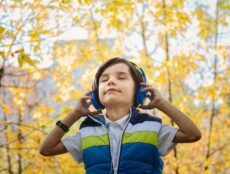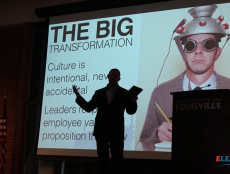
Articles
Fend Off Facebook: What To Look Out For As Students Go Fully Online
By Cristian Duque
April 01, 2020
Get ready for your learners to spend a lot more time in front of their screens. This may lead to effects on their well-being. For many reasons, you might find yourself wanting to keep Facebook at bay.
An experiment reported in one of the world’s most reputable economic journal sheds some light on desirable practices as young people are required to spend even more time online, and by themselves. By focusing on the effects of limited access to social media, the experiment is also reasonable advice for all.
An Experiment in Deactivating Facebook
In “The Welfare Effects of Social Media,” research published this month in the American Economic Review, Hunt Allcott, Luca Braghieri, Sarah Eichmeyer and Matthew Gentzkow deactivated Facebook for 1,670 people for 8 weeks, ending on the U.S. presidential election day of 2016. They were recruited, of course, through a Facebook ad.
The first step in the process was to determine the people’s “willingness-to-accept,” or WTA, a monetary sum in exchange for deactivating Facebook. This serves as a way, though imperfect, to quantify the “value” of Facebook on an individual level. The sample was made with those setting a WTA of $102 USD or lower. The median WTA was $180 and the average $100, exceeding values from previous studies. This means people deem Facebook either highly valuable or addictive. Then, the group was split into two, determined at random: One third was given the $102, the rest got $0 for the first 4 weeks. For the remaining weeks, they were offered another sum, this time a random value between $0 and $170.
How People Spent Their Time Off the Platform
The researchers then asked respondents to report how they spent their time. Twitter became the de facto social media substitution by the sample. But interestingly enough, Twitter came second to “non-screen alone time.” “TV alone time” and “Friends and family time” came 3rd and 4th.
Regarding mental and emotional well-being, the researchers report “positive but not significant” effects. They are in line with previous research suggesting the negative effects of Facebook on subjective well-being, but with smaller impact than previous studies. There was also no noticeable difference for more active Facebook users than “lurkers.” But not all feelings from Facebook deactivation were positive: After “Life satisfaction,” “Anxiety” came second, then “Happiness” tied with “Depression” followed by “Boredom.”
On sample demographics, 57% were female, 68% white, 52% were under 30, 51% had college education or higher, and 60% had an annual income of $50,000 USD or higher. These more or less mirror both the overall Facebook user and U.S. citizen demographics.
Other Results
Other outcomes of the research included:
- “Facebook-free” people freed on average 60 minutes per day. While some of this time was instead spent on other social media or online activity, the majority of people devoted the bulk of their “freed” time offline, watching TV or with friends and family.
- News consumption through Facebook was not replaced, so this groups spent 15 minutes less getting news.
- People ended up being less knowledgeable about news and politics and less “politically polarized,” but this did not appear to affect their turnout on election day. They actually were slightly more likely to open political emails.
Following up with the research, those in the “Facebook-free” group spent 22% on average less time on Facebook several weeks after the deactivation, although some people found the social media site more favorably after the deactivation.
5 percent never opened Facebook again.
Read the research here (complimentary PDF)
Featured Image: Thought Catalog, Unsplash.









[…] specializes in professional and technical training for both individuals and organizations. They have a wide offering of courses for Microsoft Office and Adobe software in addition to […]